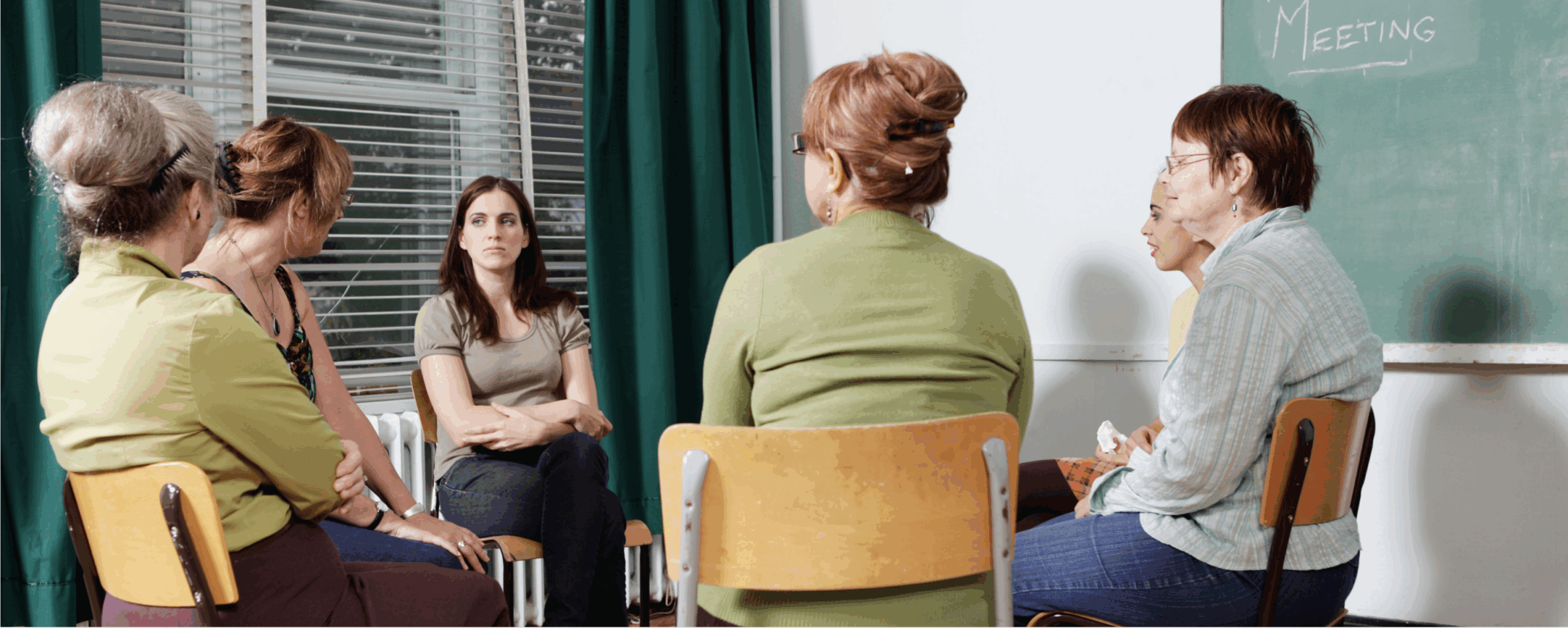Support groups play a vital role in addiction recovery, offering a lifeline to individuals who are transitioning from treatment into everyday life. While addiction treatment programs lay the groundwork for sobriety through medical detox, behavioral therapy, and holistic care, it’s often the ongoing connection to peer support groups that helps individuals maintain their sobriety long after treatment ends. Whether part of a 12-step program like Alcoholics Anonymous (AA) or a science-based approach like SMART Recovery, support groups serve as a key pillar in sustaining long-term recovery.
Why Support Groups Matter in Addiction Recovery
The road to recovery doesn’t end when a treatment program does. In fact, many people find that the most challenging part of sobriety comes after they leave a residential treatment center or complete an outpatient program. This is where aftercare planning and participation in support groups become essential.
Support groups are usually part of a long-term addiction aftercare plan, recommended by medical professionals, addiction therapists, and treatment centers to reinforce the tools learned during rehab. While support groups are not a substitute for evidence-based treatment, they provide critical emotional support, accountability, and structure during every stage of recovery.
These groups bring together individuals with shared experiences related to substance abuse, alcohol addiction, and mental health challenges, offering a judgment-free space to share, listen, and connect. The knowledge that you’re not alone—combined with the power of community—is often what helps people stay committed to recovery.
12-Step Support Groups: Alcoholics Anonymous and Narcotics Anonymous
One of the most well-known peer support options is Alcoholics Anonymous (AA). Founded in the 1930s, AA introduced the 12-step philosophy, a spiritually based approach that emphasizes personal responsibility, making amends, and seeking a higher power for strength. Members are encouraged to work through the steps with a sponsor—another member who has maintained sobriety and can offer guidance.
Narcotics Anonymous (NA) follows a similar structure, but is open to individuals recovering from all types of drug addiction, not just alcohol. Both AA and NA provide meetings in nearly every city across the U.S., and are open to anyone with a desire to stop using alcohol or drugs.
These 12-step programs promote accountability, self-awareness, and community engagement—qualities that are essential to long-term sobriety.
SMART Recovery: A Science-Based Support Group
For those who prefer a non-spiritual alternative to 12-step meetings, SMART Recovery (Self-Management and Recovery Training) offers a science-based path to recovery. SMART Recovery focuses on cognitive and behavioral principles that help individuals change negative thinking patterns and develop healthy coping strategies.
The SMART four-point program includes:
Building and maintaining motivation
Coping with urges and cravings
Managing thoughts, feelings, and behaviors
Living a balanced, fulfilling life
These meetings empower individuals to take control of their recovery using logic, critical thinking, and problem-solving, without the need for spirituality or group labels. Like AA, SMART Recovery meetings are free, and donations are optional through a “pass-the-hat” format.
Support for Family and Friends
Addiction doesn’t only affect the person struggling—it impacts the entire family unit. Fortunately, there are support groups specifically for family members and loved ones of those in recovery. Programs like Al-Anon, Nar-Anon, and SMART Recovery Family & Friends offer tools for setting healthy boundaries, processing emotions, and improving communication.
These groups can help families heal, understand the addiction recovery process, and provide the right kind of support to their loved ones, without enabling harmful behaviors.
The Science Behind Support Groups
Studies confirm the effectiveness of support groups in maintaining sobriety. According to the Substance Abuse and Mental Health Services Administration (SAMHSA), over five million Americans attend self-help groups each year. Of those, nearly half report staying sober in the 30 days prior to follow-up, demonstrating how community and connection support lasting recovery.
Support groups provide:
A sense of belonging and shared purpose
Motivation to stay sober
Role models and peer mentors
A safe space to express feelings and challenges
Help during relapse prevention or early warning signs
Whether you’re early in your recovery journey or years into sobriety, participating in peer-based recovery groups adds an essential layer of ongoing care.
Reintegration Into Life After Treatment
Leaving a drug rehab center and returning to the “real world” can be overwhelming. Navigating work, relationships, and responsibilities while maintaining sobriety is no easy feat. That’s why support groups are one of the most powerful tools in an aftercare plan—they provide stability and routine during times of transition.
For those enrolled in outpatient treatment or intensive outpatient programs (IOPs), peer support groups offer an opportunity to process emotions in a safe, understanding environment outside of therapy. Many rehab facilities integrate these meetings into their programs and strongly encourage guests to continue attending after graduation. This helps support relapse prevention.
Find Support at Royal Life Centers
At Royal Life Centers, we understand that recovery isn’t a one-time event—it’s a lifelong journey. That’s why we incorporate peer support, aftercare planning, and community reintegration into every level of our treatment programs. Whether you’re participating in inpatient rehab, partial hospitalization, or intensive outpatient care, we help you build connections with support groups in your local area and online.
We offer full-spectrum addiction treatment, including medical detox, dual diagnosis care, sober living, and personalized therapy to ensure that you or your loved one gets the care needed to recover—physically, emotionally, and spiritually.
Call Us Today to Start Your Recovery
If you or a loved one is seeking recovery from addiction, finding the right treatment facility is one of the most important steps you can take. At Royal Life Centers, we provide compassionate, evidence-based substance abuse treatment for individuals with substance use disorders, mental health challenges, or co-occurring conditions such as mental illness. Whether you’re overcoming alcohol abuse, crystal meth dependence, or crack cocaine use, our programs are designed to support people in recovery through every stage of healing. With a wide range of coping skills, therapies, and community programs—including sober living options and arts therapy—we help you set and achieve your recovery goals. You’ll find strength in connecting with others who have had similar experiences, and experience the real benefits of peer support.
If you or someone you love is struggling with drug or alcohol addiction, don’t wait to get help. At Royal Life Centers, we’re here for you 24/7 with compassionate, evidence-based care. Call us today at (877)-RECOVERY or (877)-667-1897 to speak with an admissions specialist and learn how support groups and structured treatment can help you or your loved one reclaim a life of purpose and sobriety.
Because We Care.
- Is Valium Addictive? - August 27, 2025
- How Long Does MDMA Last? - August 13, 2025
- The Role Of Support Groups In Addiction Treatment - July 14, 2025


















